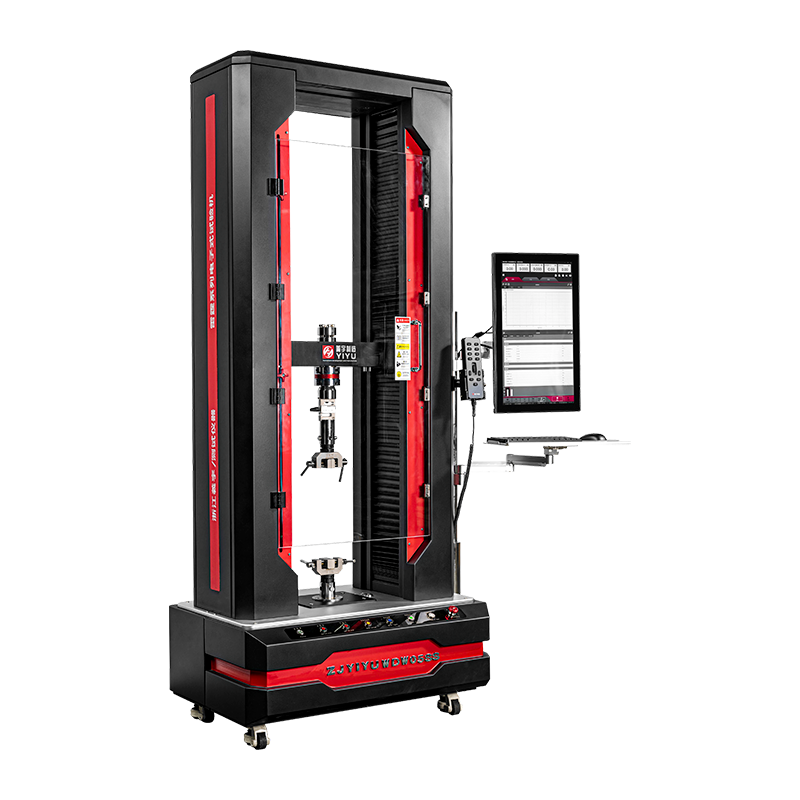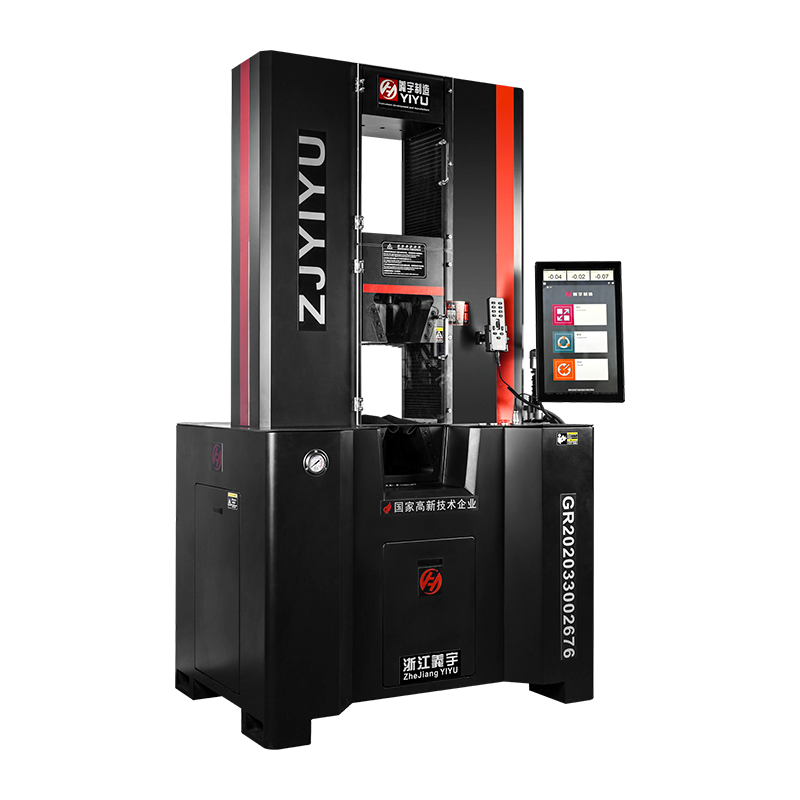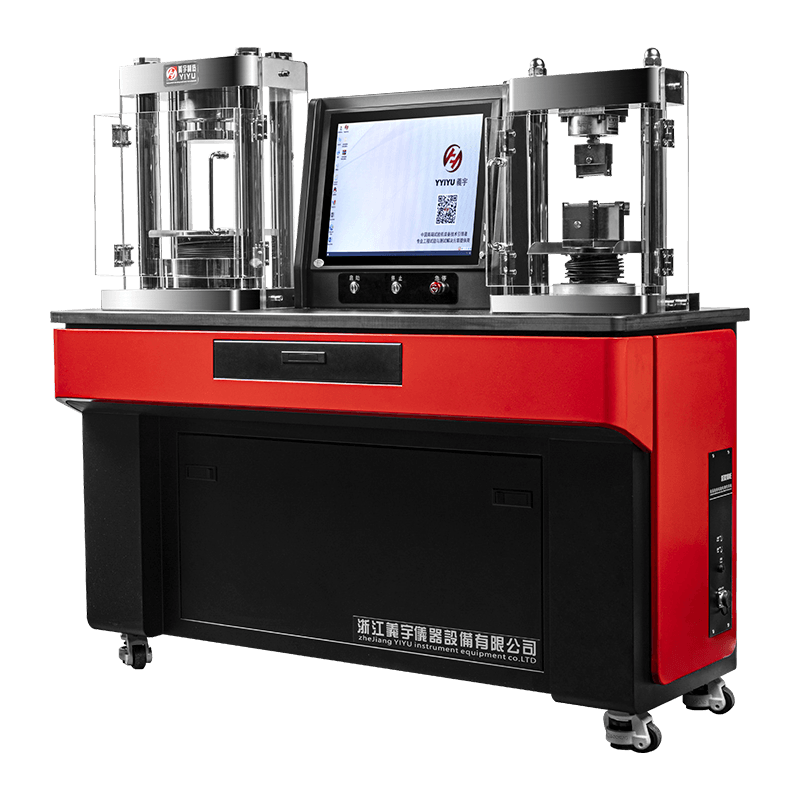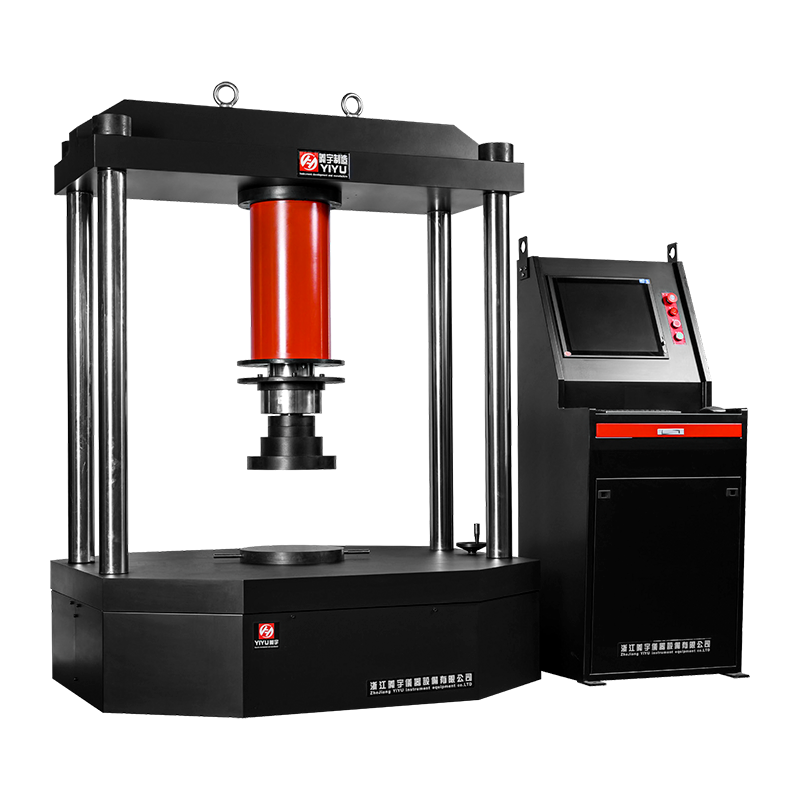With the continuous advancement of global industry, the use of high-performance materials has become a key trend, particularly in fields such as aerospace, automotive manufacturing, and electronic equipment. High-performance materials often have specialized physical property requirements, such as high strength, high-temperature resistance, and corrosion resistance. Therefore, accurately testing these materials to ensure they meet diverse application requirements has become a critical issue in the industry. In this process, universal testing machines, as versatile and high-precision materials testing tools, play an irreplaceable role.
What is a universal testing machine?
A universal testing machine is a device widely used for mechanical testing of materials. It can perform a variety of mechanical tests, including tension, compression, bending, shear, and fatigue. By applying varying forces to a specimen, a universal testing machine measures key physical properties such as stress, strain, yield point, tensile strength, and ductility under varying loads.
The operating principle of a universal testing machine is relatively simple, yet its capabilities are powerful. Utilizing technologies such as servo motors, hydraulic systems, and high-precision sensors, the equipment can precisely apply various loads and monitor changes in the material under load in real time. With the advancement of computer control technology, modern universal testing machines are equipped with advanced testing software that can process test data in real time and generate detailed performance reports.
Special Requirements for High-Performance Materials
High-performance materials refer to those that demonstrate exceptional performance under extreme environmental conditions. Examples include metal alloys in the aerospace industry, lightweight composite materials in the automotive industry, and high-thermal-conductivity materials in the electronics industry. Their common characteristic is the need to maintain stable performance under conditions of high stress, extreme temperatures, and long-term loads.
Aerospace: Materials must withstand extremely high temperatures, strong winds and pressures, as well as long-term fatigue stress.
Automotive: Materials require high strength, good toughness, and lightweight properties to improve fuel efficiency and ensure safety.
Electronic devices: High-thermal-conductivity and superconducting materials play a vital role in power transmission and heat dissipation systems.
Building materials: High compressive strength and corrosion resistance are required to ensure the long-term safety of buildings.
To ensure these materials perform optimally in real-world applications, they must undergo a series of precise tests, including tensile strength, yield point, fatigue life, and bending resistance. Universal testing machines provide the most precise testing methods, enabling the testing of various material properties in diverse application scenarios.
Applications of Universal Testing Machines in High-Performance Material Testing
Tensile Testing: Verifying the Tensile Properties of High-Strength Materials
Tensile properties are a crucial metric in high-performance material applications. Tensile testing helps engineers assess material properties such as tensile strength, yield strength, ductility, and elastic modulus, which are crucial for ensuring the material's stability and safety under tension.
For example, in the aerospace industry, metal alloys must possess extremely high tensile strength to withstand the intense tensile forces experienced during flight. Composite materials, on the other hand, require good ductility and low yield strength to withstand the high stresses and pressure fluctuations experienced during flight. Tensile testing using universal testing machines provides detailed data supporting these high-performance materials, ensuring their reliability under real-world operating conditions.
Compression Testing: Ensuring Material Stability Under Extreme Pressure
In some applications, materials must withstand not only tensile forces but also significant compressive forces. Compression testing helps analyze material properties such as compressive strength, compression modulus, and elastic recovery under compression. This type of testing is particularly important in the construction and automotive industries.
For example, automotive body structural materials must exhibit high compressive strength to ensure effective impact absorption in a collision. Compression testing using a universal testing machine can simulate a collision environment and assess the deformation of body materials under extreme compression, thereby improving vehicle safety.
Bend Testing: Evaluating Material Performance Under Bending Conditions
Bend testing is typically used to evaluate material properties such as flexural strength, flexural modulus, and yield point under bending loads. Many high-performance materials, such as composites and metal alloys, are subjected to bending forces in real-world applications, making bend testing crucial.
In the aerospace industry, wings and aircraft structural components often experience bending loads during flight. Using a universal testing machine for bend testing effectively evaluates the material's flexural properties, ensuring it will not crack or break under extreme operating conditions.
Fatigue Testing: Analyzing Material Durability
For high-performance materials, fatigue performance is a crucial indicator for assessing their long-term stability. Fatigue testing assesses material properties such as fatigue strength and fatigue life under long-term, repeated loads, ensuring the material's reliability over time.
For example, aircraft engine components and automotive suspension systems experience repeated stress changes over time. Fatigue testing can help designers predict material performance changes over time, thereby optimizing material selection and design. Universal testing machines provide precise data support during this process, enabling engineers to achieve efficient design optimization.
Shear Testing: Ensuring Material Performance Under Shear
Shear is a force that many high-performance materials must withstand in their applications. Shear testing measures properties such as shear strength and shear modulus under shear, helping engineers ensure material stability under shear loads.
In automotive manufacturing and construction, many components are connected by bolts or welds, and shear is often the maximum load faced by these connected components. Through shear testing on a universal testing machine, engineers can ensure that connected components can withstand the shear forces in actual use, ensuring product safety.






